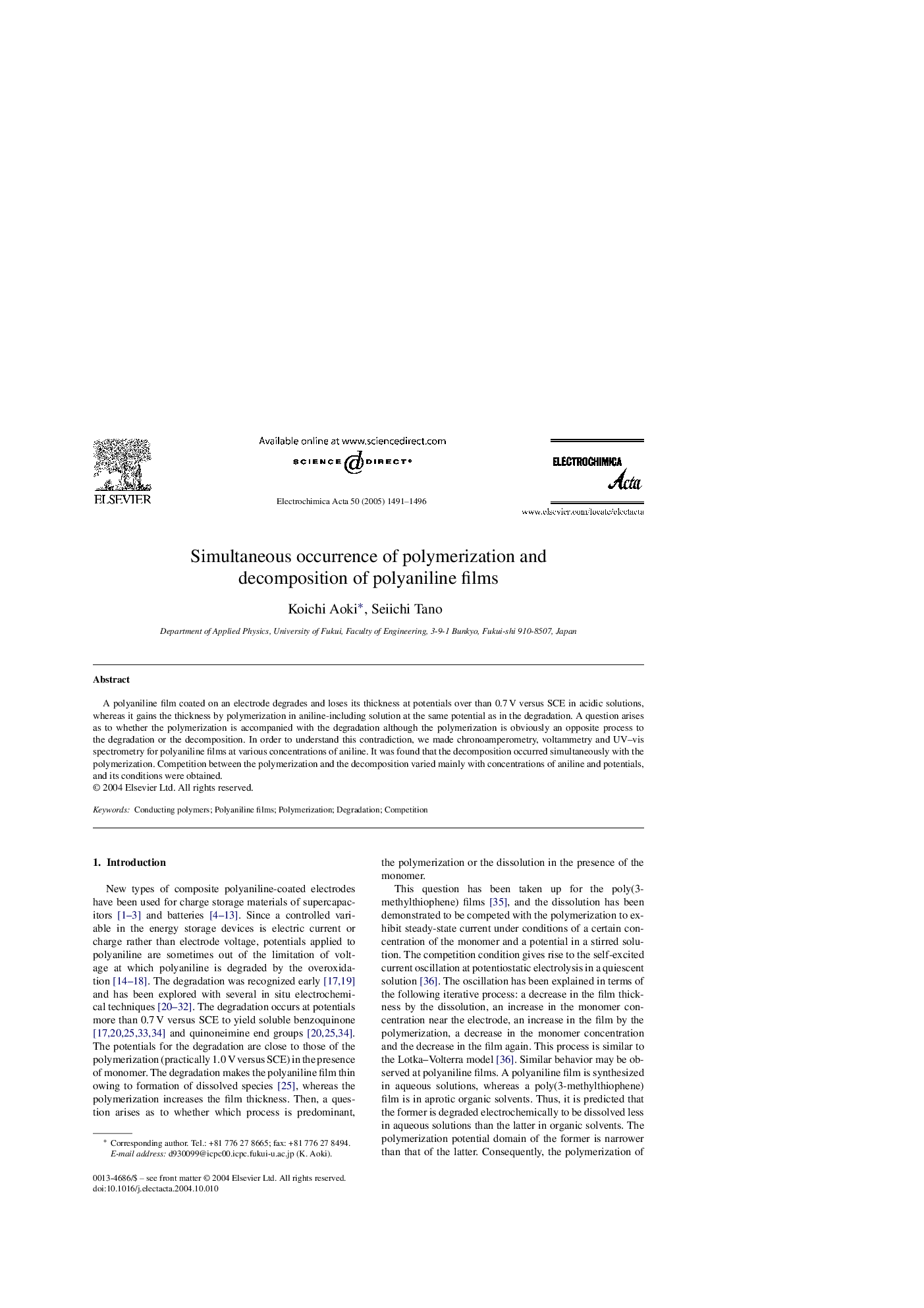| Article ID | Journal | Published Year | Pages | File Type |
|---|---|---|---|---|
| 9625602 | Electrochimica Acta | 2005 | 6 Pages |
Abstract
A polyaniline film coated on an electrode degrades and loses its thickness at potentials over than 0.7Â V versus SCE in acidic solutions, whereas it gains the thickness by polymerization in aniline-including solution at the same potential as in the degradation. A question arises as to whether the polymerization is accompanied with the degradation although the polymerization is obviously an opposite process to the degradation or the decomposition. In order to understand this contradiction, we made chronoamperometry, voltammetry and UV-vis spectrometry for polyaniline films at various concentrations of aniline. It was found that the decomposition occurred simultaneously with the polymerization. Competition between the polymerization and the decomposition varied mainly with concentrations of aniline and potentials, and its conditions were obtained.
Related Topics
Physical Sciences and Engineering
Chemical Engineering
Chemical Engineering (General)
Authors
Koichi Aoki, Seiichi Tano,
